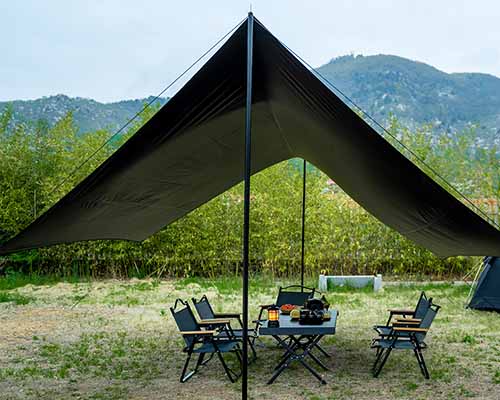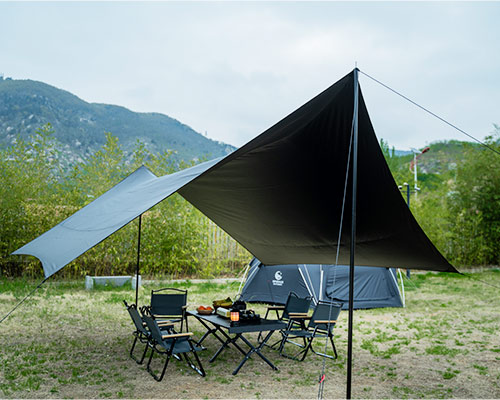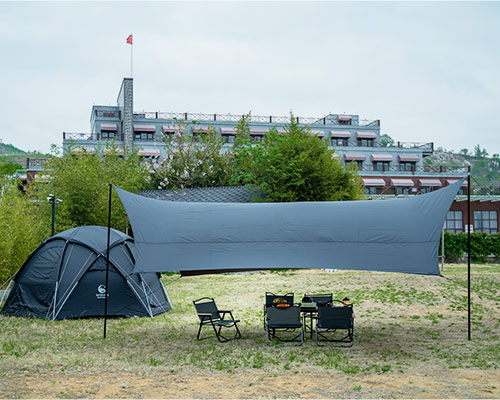Welcome to My Blog!
Before we dive into the content, I’d love for you to join me on my social media platforms where I share more insights, engage with the community, and post updates. Here’s how you can connect with me:
Facebook:https://www.facebook.com/profile.php?id=61569274896143
Now, let’s get started on our journey together. I hope you find the content here insightful, engaging, and valuable.
Table of Contents
Introduction
A best custom canopy tent is essential for modern brand visibility, transforming a simple shelter into a powerful marketing tool. It allows businesses, event organizers, and brands to stand out, offering a dynamic way to advertise, promote, and create a professional presence at any event. Choosing the right tent means considering factors beyond just protection, focusing on how it can elevate your brand.
Xingyue, as a professional outdoor tent manufacturer, specializes in providing customized solutions for diverse needs. From inflatable to aluminum pole tents, we offer comprehensive OEM/ODM services. This means we can help you tailor every aspect of your custom canopy tent, from material and color to branding and packaging, ensuring it perfectly aligns with your specific requirements and strengthens your outdoor presence.

Why Invest in a Best Custom Canopy Tent?
A custom canopy tent offers a multitude of benefits beyond mere protection from the elements. It provides a unique opportunity to reinforce your brand identity and leave a lasting impression. Imagine a sea of generic tents at an outdoor event; your custom-designed canopy will immediately draw attention, making your booth a memorable landmark.
Brand Visibility and Recognition
A custom canopy tent acts as a giant billboard for your brand. With your logo, colors, and messaging prominently displayed, it ensures maximum visibility. This constant exposure helps in building brand recognition, making it easier for potential customers to remember and identify your business.
Professional Appearance
A well-designed custom canopy tent conveys professionalism and credibility. It shows that you’ve invested in your brand and are serious about your business. This can significantly impact how potential clients perceive your products or services.
Marketing and Promotion
Beyond just a logo, a custom canopy tent can feature special promotions, product highlights, or even QR codes linking to your website. It transforms your space into an interactive marketing hub, encouraging engagement and driving sales leads.
Versatility and Durability
The best custom canopy tent is designed for versatility, suitable for various events, from trade shows and festivals to farmers’ markets and sporting events. Durability is also key, ensuring your investment stands the test of time and various weather conditions.
Key Considerations When Choosing Your Best Custom Canopy Tent
Selecting the best custom canopy tent involves evaluating several critical factors. Each element plays a vital role in the tent’s functionality, longevity, and overall effectiveness as a marketing tool.
Size and Footprint
The first step is to determine the ideal size for your best custom canopy tent. Consider the space you have available at events and the amount of equipment or display items you need to accommodate. Common sizes include 10×10, 10×15, and 10×20 feet, but many manufacturers offer custom dimensions. Think about not just the canopy area but also any necessary walk-around space for customers.
Frame Material
The frame is the skeleton of your best custom canopy tent, and its material significantly impacts durability and weight.
- Steel Frames: These are generally more robust and durable but also heavier. They are a good choice if your tent will be set up for extended periods or in windy conditions.
- Aluminum Frames: Lighter than steel, aluminum frames are excellent for portability and ease of setup. High-grade aluminum can still offer significant strength and resistance to rust.
- Commercial-Grade Aluminum: This is often the preferred choice for the best custom canopy tent due to its optimal balance of strength, lightweight properties, and corrosion resistance.
Canopy Fabric
The fabric of your best custom canopy tent determines its weather resistance, UV protection, and print quality.
- Polyester: A popular choice for its affordability and versatility. Look for polyester with a PVC or polyurethane coating for enhanced waterproofing.
- Vinyl: Known for its exceptional durability and water resistance, vinyl is a heavy-duty option, often used for commercial-grade tents.
- Denier Count: This measures the fabric’s thickness and durability. A higher denier count indicates a stronger, more tear-resistant fabric. For the best custom canopy tent, aim for a higher denier count for increased longevity.
- UV Protection: Ensure the fabric offers good UV protection to prevent fading of your custom graphics and protect occupants from harmful sun rays.
- Fire Retardancy: Many venues require tents to meet specific fire safety standards. Check if the fabric is fire-retardant.
Printing and Graphics
This is where your best custom canopy tent truly comes to life. High-quality printing is essential for a professional look.
- Dye Sublimation: This printing method offers vibrant colors, sharp details, and fade-resistant graphics. The ink becomes part of the fabric, preventing cracking or peeling. It’s often considered the superior option for a truly striking best custom canopy tent.
- Screen Printing: Suitable for simpler designs with fewer colors, screen printing is a cost-effective option for bulk orders.
- UV Printing: This method uses UV-curable inks that dry instantly when exposed to UV light, offering good durability and resistance to scratching.
Portability and Storage
Consider how easy your custom canopy tent will be to transport and store.
- Wheeled Bags: These are a game-changer for portability, making it much easier to move your tent from one location to another.
- Compact Design: Some tents are designed to fold down into a more compact size, saving storage space.
- Weight: A lighter tent is always easier to manage, especially if you’ll be setting it up frequently by yourself.
Accessories
Various accessories can enhance the functionality and appearance of your custom canopy tent.
- Sidewalls: Offer additional protection from wind and rain, and provide more surface area for branding.
- Weight Bags/Stakes: Essential for securing your tent, especially in windy conditions.
- Lighting: Internal lighting can extend your operating hours and make your booth more inviting.
- Flags and Banners: Further enhance your brand visibility.
Understanding Customization Options
The beauty of a best custom canopy tent lies in its ability to be a blank canvas for your brand identity. You can select colors that align with your branding, integrate intricate logos, taglines, and even high-resolution images. Beyond just printing, consider options like custom valance designs, multiple wall configurations (full, half, mesh), and even specialized fabric treatments for fire resistance or enhanced UV protection. The goal is to create a unique and memorable presence that distinguishes your tent from standard, off-the-shelf options.
Factors Influencing Durability and Quality
When investing in a best custom canopy tent, durability and quality are paramount. These factors directly impact the tent’s lifespan, its ability to withstand various weather conditions, and ultimately, the return on your investment.
Frame Construction and Materials
The backbone of any reliable custom canopy tent is its frame.
- Aluminum vs. Steel: Aluminum frames offer a lightweight advantage, making them easier to transport and set up. However, high-grade aluminum is crucial for strength. Steel frames, while heavier, often provide superior stability and can be more resistant to damage from strong winds, especially for larger custom canopy tents.
- Leg Diameter and Wall Thickness: Thicker legs and walls indicate a more robust frame. Commercial-grade best custom canopy tent will typically feature larger diameter legs and thicker aluminum or steel for enhanced stability and longevity.
- Truss Design: The type of truss system (e.g., straight-leg, slant-leg) also impacts stability. Straight-leg designs generally offer more usable space and better stability.
- Connectors: High-quality connectors, often made of durable nylon or metal, are essential to prevent breakage and ensure smooth operation when collapsing and expanding the custom canopy tent.
Canopy Fabric and Coatings
The canopy fabric is your brand’s face and its primary protection against the elements.
- Material Type: Polyester is common due to its versatility and affordability. For superior weather resistance and durability, PVC-coated polyester or vinyl are often preferred for a heavy-duty custom canopy tent.
- Denier Count: The denier count indicates the fabric’s density and strength. Higher denier counts (e.g., 600D, 900D) mean a more robust fabric that is less prone to tearing or fraying, making it ideal for a long-lasting custom canopy tent.
- Waterproofing: Look for fabrics with high waterproof ratings, often achieved through PU (polyurethane) or PVC coatings. This ensures your custom canopy tent keeps you and your belongings dry during unexpected showers.
- UV Protection: UV-resistant fabrics prevent sun damage to both the tent material and your custom graphics, preserving the vibrant colors and extending the life of your custom canopy tent.
- Fire Retardancy: For many public events, fire-retardant materials are a requirement. Ensure your chosen custom canopy tent fabric meets relevant fire safety standards.
Printing Methods
The quality of your custom graphics depends heavily on the printing method.
- Dye Sublimation: This premium printing technique infuses the ink directly into the fabric fibers, resulting in vibrant, full-color, and highly durable graphics that won’t crack, peel, or fade over time. It’s the top choice for a high-impact, professional custom canopy tent.
- Screen Printing: Suitable for simpler designs and limited color palettes, screen printing applies ink to the surface of the fabric. While more economical for large runs, it may not offer the same level of detail or fade resistance as dye sublimation for a complex custom canopy tent design.
- UV Printing: UV printing uses special inks cured by UV light, offering good scratch and fade resistance. It’s a versatile option for various materials and can produce crisp graphics for your custom canopy tent.
Usage Scenarios for Your Custom Canopy Tent
A custom canopy tent is an incredibly versatile tool, proving invaluable across a wide range of applications.
Business and Trade Shows
For businesses attending trade shows, a custom canopy tent serves as a focal point. It immediately identifies your brand, creating an inviting space for networking and product demonstrations. The clear branding helps potential clients easily locate your booth amidst a busy exhibition hall.
Outdoor Events and Festivals
At outdoor events and festivals, a custom canopy tent provides essential shelter from sun or rain, while simultaneously acting as a vibrant advertisement. Food vendors, craftspeople, and non-profits all benefit from a branded space that draws in visitors.
Sporting Events and Tailgating
Sports teams and fans can utilize a custom canopy tent for team gatherings, pre-game tailgating, or even as a mobile fan shop. Displaying team colors and logos fosters camaraderie and spirit.
Farmers Markets and Fairs
For local producers and artisans at farmers markets, a custom canopy tent offers a professional and inviting setup. It helps differentiate your stand and builds trust with customers by showcasing your brand identity.
Community Events and Fundraisers
Organizations hosting community events or fundraisers can use a custom canopy tent to establish a visible presence, disseminate information, and encourage participation. It helps create a cohesive and branded experience for attendees.
Comparative Table of Best Custom Canopy Tent Features
To help you visualize the different aspects discussed, here’s a table outlining key features to consider when choosing your best custom canopy tent:
| Feature | Description | Benefits for Your Custom Canopy Tent |
| Frame Material | Aluminum (lightweight, rust-resistant) vs. Steel (heavier, more robust). | Aluminum is ideal for portability; steel offers maximum stability for heavy-duty use. The best custom canopy tent often uses high-grade aluminum. |
| Leg Profile | Square (common, can dent) vs. Hexagonal (stronger, better impact resistance). | Hexagonal legs provide superior strength and stability, crucial for a durable custom canopy tent. |
| Leg Diameter & Thickness | Larger diameter and thicker walls indicate a stronger frame. | Directly correlates to the frame’s overall strength and resistance to bending, enhancing the longevity of your custom canopy tent. |
| Truss Bar Design | The horizontal bars connecting the legs; thickness and connectors are key. | Thicker truss bars and sturdy double-sided connectors prevent collapsing and twisting, ensuring a reliable structure for your custom canopy tent. |
| Footplates | The base plates at the bottom of the legs, often steel or nylon. | Large, durable footplates (ideally steel) provide better stability and impact resistance compared to smaller, weaker plastic options. |
| Locking System | Mechanism for securing the frame (e.g., push-button, pull-pin, quick-release). | An efficient and robust locking system makes setup and takedown smoother and more secure, prolonging the life of your custom canopy tent. |
| Canopy Fabric Type | Polyester (standard) vs. Vinyl (heavy-duty, highly waterproof). | Polyester with coatings is versatile; vinyl offers maximum durability and weather protection for your custom canopy tent. |
| Fabric Denier Count | Measures fabric thickness/durability (e.g., 500D, 600D, 900D). | Higher denier counts mean a more tear-resistant and long-lasting fabric, ensuring your custom canopy tent withstands wear and tear. |
| Waterproofing/Coatings | PU (Polyurethane) or PVC coatings applied to fabric. | Essential for keeping the interior dry during rain; a well-coated fabric protects your belongings in a custom canopy tent. |
| UV Resistance | Fabric treated to resist fading and degradation from sun exposure. | Preserves the vibrancy of your custom graphics and extends the lifespan of the canopy material on your custom canopy tent. |
| Fire Retardancy | Fabric treated to meet fire safety standards. | Critical for compliance at many public events, ensuring safety and allowing use in regulated venues for your custom canopy tent. |
| Printing Method | Dye Sublimation (vibrant, durable) vs. Screen Print (cost-effective for simple designs). | Dye sublimation provides superior, fade-resistant graphics, making your custom canopy tent visually impactful for years. |
| Portability Features | Wheeled bags, compact folding design, overall weight. | Easier transport and storage, reducing effort for setup and takedown, which is vital for a mobile custom canopy tent. |
| Sidewalls | Optional panels that attach to the frame, can be full, half, or mesh. | Offers added weather protection, privacy, and additional branding opportunities for your custom canopy tent. |
| Anchoring Options | Stakes, sandbags, water bags, tie-downs. | Crucial for securing the tent against wind, preventing damage, and ensuring safety for your custom canopy tent. |
Practical Tips for Maintaining Your Best Custom Canopy Tent


To maximize the lifespan and effectiveness of your custom canopy tent, proper care and maintenance are crucial.
Regular Cleaning
After each use, especially if the custom canopy tent has been exposed to dirt, mud, or food spills, clean the fabric. Use mild soap and water, and a soft brush or cloth. Avoid harsh chemicals or abrasive cleaners that could damage the fabric or fade the custom graphics.
Thorough Drying
Always ensure your custom canopy tent is completely dry before packing it away. Storing a damp tent can lead to mildew growth, which not only smells unpleasant but also degrades the fabric and can permanently stain your custom graphics. If you must pack it wet, unpack and air it out as soon as possible.
Proper Storage
Store your custom canopy tent in a dry, cool place, away from direct sunlight and extreme temperatures. Use the provided carrying bag to protect the fabric and frame from dust and scratches. If your tent came with a wheeled bag, utilize it for easier transport and to protect the custom canopy tent during storage.
Inspect for Damage
Before and after each use, inspect the frame for any bends, cracks, or loose fasteners. Check the fabric for tears, holes, or fraying. Addressing minor issues promptly can prevent them from escalating into major repairs, ensuring your custom canopy tent remains in top condition.
Secure Setup
Always use appropriate weights or stakes to secure your custom canopy tent, especially in windy conditions. Overlooking this step is a common cause of damage to the frame and canopy. A properly secured custom canopy tent is a safe and durable one.
Conclusion
Selecting the best custom canopy tent is a strategic choice for boosting your brand’s visibility and professionalism. By focusing on quality frame materials, durable canopy fabric, and effective printing methods, your tent becomes a powerful marketing tool that offers a strong return on investment through enhanced brand recognition.
If you’re looking to elevate your brand with a standout, durable, and eye-catching custom canopy tent, contact us at Xingyue today. We’ll work with you to create a tailor-made outdoor presence that truly meets your specific needs.
FAQ
How long does a best custom canopy tent typically last?
The lifespan of a custom canopy tent varies depending on the quality of materials, frequency of use, and proper maintenance. A high-quality best custom canopy tent with a durable frame and fabric, well-maintained, can last anywhere from 5 to 10 years or even longer. Investing in a robust frame and a high-denier fabric significantly contributes to longevity.
Can I get replacement parts for my best custom canopy tent?
Many reputable manufacturers offer replacement parts such as frame components, canopy tops, and sidewalls. It’s always a good idea to check with the manufacturer or supplier about their replacement parts policy before purchasing your custom canopy tent. This ensures you can easily repair rather than replace your entire unit if a part gets damaged.
What’s the difference between a commercial-grade and a standard best custom canopy tent?
A commercial-grade custom canopy tent is built with heavier-duty materials, including thicker gauge aluminum or steel frames, higher denier fabrics, and more robust connectors. They are designed for frequent use and harsher conditions, offering superior durability and stability compared to standard or recreational custom canopy tents.
How long does it take to get a best custom canopy tent made?
Production times for a best custom canopy tent can vary based on the manufacturer, the complexity of your design, and current demand. Generally, it can range from 1 to 4 weeks after design approval. It’s advisable to plan ahead, especially if you have a specific event deadline.